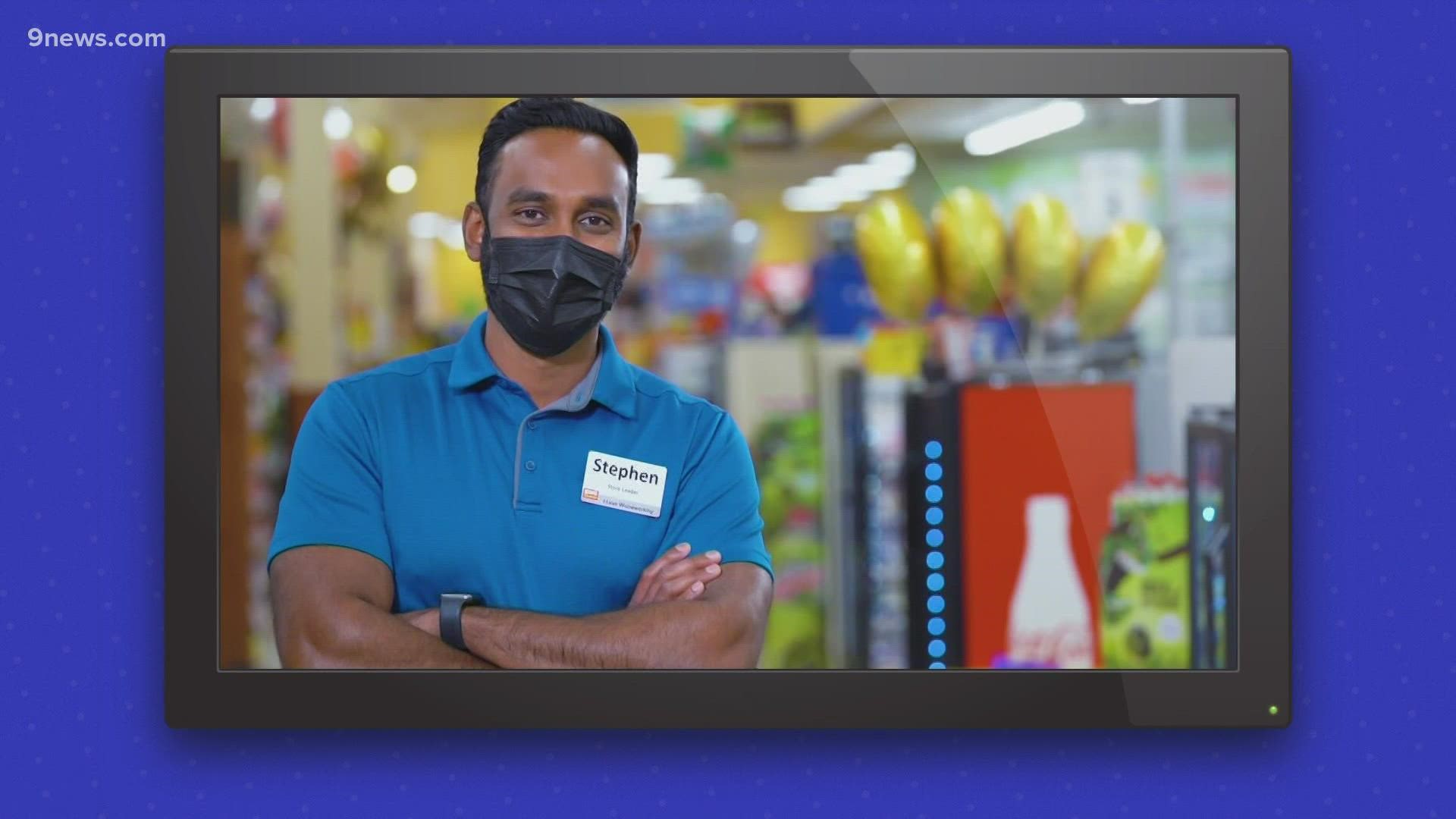DENVER — This weekend, some television viewers saw a commercial for King Soopers much different than the usual.
It didn’t include cartoons picking through colorful groceries or a song by Flo Rida. The ad instead featured a love note for the company’s associates, advertising the average hourly wage of $18.29.
“We do play that now during negotiations as well just to set the record straight for the community so they understand with all the rhetoric out there,” King Soopers and City Market president Joe Kelley told Next with Kyle Clark during an interview Monday.
Days before workers are set to go on strike, both the company and the union representing its workers are hard at work getting their side of the story to the public. UFCW Local 7 President Kim Cordova held a news conference Monday afternoon, standing beside King Soopers employees.
Cordova again accused King Soopers management of unfair labor practices, saying the company was trying to negotiate directly with its employees rather than the union’s bargaining team. She accused King Soopers of not having local people at the bargaining table, instead relying on lawyers from other states who don’t understand conditions in Colorado.
Cordova also laid out a laundry list of problems with the company, from safety issues plaguing workers to unfair pay and major concessions in the deal presented to the union.
King Soopers management accused Cordova and the union of avoiding the bargaining table and turning down an attempt at bringing in a federal mediator to try and settle the dispute before the strike begins on Wednesday morning.
“We’ve been at the negotiating table all weekend long and she’s refused to come back to the table to negotiate in good faith,” Kelley said. “We need the community and our associates to know we have a very sound offer on the table.”
Shoppers will very likely sway the negotiations, especially if workers go forward with their strike on Wednesday.
“For the most part both sides know that they have to be tried by the court of public opinion – whether that’s via social media or the media,” said Darrin Duber-Smith, a special lecturer of marketing at Metropolitan State University of Denver. “I think that the company is almost always made out to be the bad guy, whether it’s in traditional media or social media, warranted or not. I think that’s the default.”
Duber-Smith said people in the public generally struggle to understand an employer’s position in an argument like this because people have been trained to distrust institutions from a young age.
“Ninety percent of Americans feel that they’re underpaid. So when it comes down to it it really comes down to money,” he said. “Ultimately, a retailer can only afford to pay its employees so much. Retailers operate on extraordinarily thin margins compared to other companies.”
He said the fallout from a strike could be felt by workers in the long term.
“If the company gets weaker – perhaps there will be fewer jobs offered by King Soopers in the future. Perhaps there will be automation.”
Jeffrey Zax, a professor of economics at the University of Colorad Boulder, said no one wins in a strike.
“Generally, strikes are not common and that’s because they hurt,” he said. “They are painful. You don’t do them unless there’s something substantial at stake.”
Zax said consumers watching what’s happening at the grocery chain may have a vested interest because when wages increase for one segment of the population, they tend to do so in other areas as well.
“I’d bet that the public’s opinion about this could actually be fairly important,” he said. “In the end – strikes are costly. Everyone’s going to suffer. The employer and the employees – they’re all going to get hurt by this. So I’ve got to believe that no one is taking this decision lightly.”
SUGGESTED VIDEOS: Full Episodes of Next with Kyle Clark

